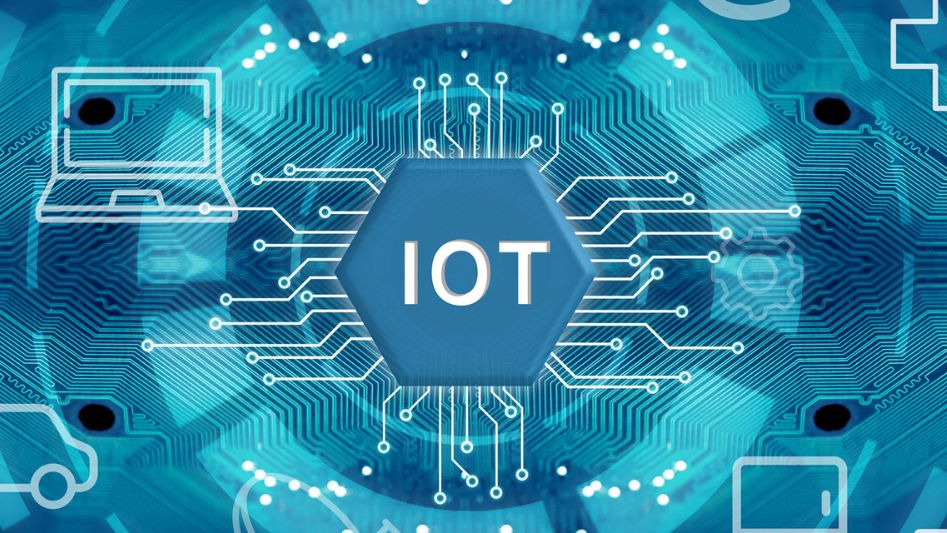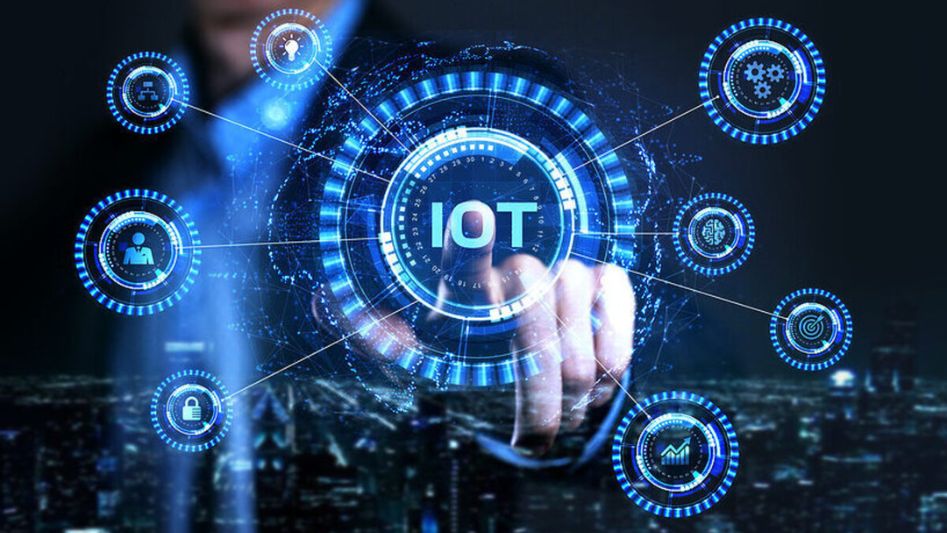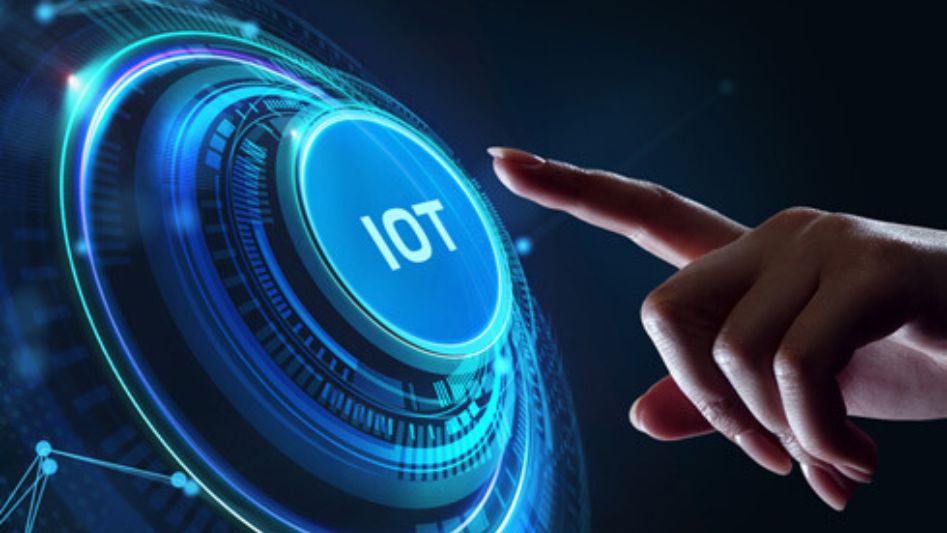In an era where environmental concerns have taken center stage, technology is playing a pivotal role in shaping a more sustainable future. The Internet of Things (IoT), a network of interconnected smart devices, is at the forefront of this green revolution. IoT has transformed the way we live, work, and interact with the world, but perhaps its most significant impact is in the realm of sustainability. In this article, we explore how IoT is driving environmental sustainability through various applications and initiatives.
Table of Contents:
We invite you to read: “THE IOT IN TRANSPORTATION: A JOURNEY INTO THE FUTURE”

The IoT Revolution
The Internet of Things refers to a vast ecosystem of interconnected devices, sensors, and software that collect and exchange data over the internet. These devices can range from smartphones and wearables to industrial machines and environmental sensors. IoT devices enable seamless communication, data analysis, and automation, making them a powerful tool for addressing sustainability challenges.
Reducing Energy Consumption
One of the most prominent ways IoT contributes to sustainability is by optimizing energy use. Smart thermostats, such as Nest and Ecobee, are a prime example. These devices use sensors to detect occupancy and adjust heating or cooling accordingly, resulting in substantial energy savings. In large buildings, IoT-based systems can control lighting, HVAC, and other energy-consuming systems, reducing overall energy consumption and carbon emissions.
Efficient Resource Management
IoT also plays a crucial role in resource management. In agriculture, for instance, smart sensors monitor soil conditions, humidity, and weather patterns. Farmers can receive real-time data and make informed decisions about irrigation, fertilization, and pest control. This precision farming not only increases crop yields but also minimizes the use of water, pesticides, and fertilizers, reducing environmental impacts.
Waste Reduction and Recycling
Smart waste management systems are gaining popularity in cities worldwide. IoT-enabled trash bins equipped with sensors can monitor their fill levels and send alerts to waste collection services when they need emptying. This optimization of waste collection routes reduces fuel consumption and greenhouse gas emissions while making cities cleaner and more efficient.
We invite you to read: “IOT SECURITY CONCERNS: SAFEGUARDING DEVICES IN A CONNECTED WORLD”

Sustainable Transportation
The IoT is transforming the transportation sector, promoting eco-friendly alternatives. Smart traffic management systems optimize traffic flow, reducing congestion and fuel consumption. Electric vehicles (EVs) are becoming increasingly popular, thanks in part to IoT technology that enables efficient charging infrastructure and remote monitoring of battery health.
Conservation and Environmental Monitoring
IoT is invaluable in monitoring and conserving ecosystems. Environmental sensors placed in forests, oceans, and wildlife habitats provide researchers with real-time data on climate conditions, wildlife movements, and habitat health. This information is crucial for making informed conservation decisions and mitigating the effects of climate change.
Sustainable Cities
The concept of smart cities is closely tied to IoT and sustainability. These cities leverage technology to enhance energy efficiency, reduce pollution, and improve overall quality of life. Smart grids manage energy distribution, while connected public transportation systems make commuting more efficient and environmentally friendly. IoT also contributes to urban planning by monitoring air quality, noise levels, and traffic patterns, leading to healthier, more sustainable urban environments.
Challenges and Considerations
While IoT holds tremendous promise for sustainability, it’s not without challenges. Data privacy and security concerns are paramount, as IoT devices collect and transmit sensitive information. Ensuring the secure operation of these devices is essential to prevent data breaches and maintain public trust.
Moreover, the rapid proliferation of IoT devices raises questions about electronic waste and the environmental impact of manufacturing and disposing of these devices. Sustainable design and responsible disposal practices are essential to mitigate these concerns.
We invite you to read: “THE FUTURE OF TECHNOLOGY: PREDICTIONS ON AI AND IOT’S IMPACT IN THE NEXT 10 YEARS”

Conclusion
The Internet of Things has emerged as a powerful ally in the global effort to address sustainability challenges. From reducing energy consumption to optimizing resource management, IoT devices and systems are making significant contributions to a more environmentally conscious world. As technology continues to advance, the potential for IoT to drive sustainability is boundless, offering hope for a greener, more sustainable future for generations to come. However, it is crucial to address the challenges and responsibilities associated with IoT to ensure that this technological revolution truly benefits the planet.
FAQs
How does IoT reduce energy consumption?
IoT reduces energy consumption by enabling smart devices like thermostats to monitor occupancy and adjust heating or cooling, resulting in energy savings.
What role does IoT play in waste management?
IoT improves waste management by using sensors in trash bins to monitor fill levels, optimizing collection routes, reducing fuel consumption, and making cities cleaner.
How is IoT contributing to conservation efforts?
IoT aids conservation by deploying environmental sensors in ecosystems, providing real-time data on climate conditions, wildlife movements, and habitat health, which is crucial for informed conservation decisions.
Are there challenges associated with IoT and sustainability?
Yes, challenges include data privacy and security concerns, electronic waste, and the environmental impact of manufacturing IoT devices. Sustainable design and responsible disposal practices are essential.
You May Also Like
- DEMYSTIFYING AI: A BEGINNER’S GUIDE TO ARTIFICIAL INTELLIGENCE
- THE FUTURE OF TECH: EXPLORING EMERGING TRENDS IN 2023
- THE SILENT REVOLUTION: HOW IOT DEVICES ARE QUIETLY CHANGING OUR DAILY LIVES
- BEYOND AUTOMATION: THE TRANSFORMATIVE POWER OF AI IN EVERYDAY TECHNOLOGIES
- BUILDING INTELLIGENT SOFTWARE: BEST PRACTICES FOR INTEGRATING AI IN DEVELOPMENT PROCESSES


Recent Comments